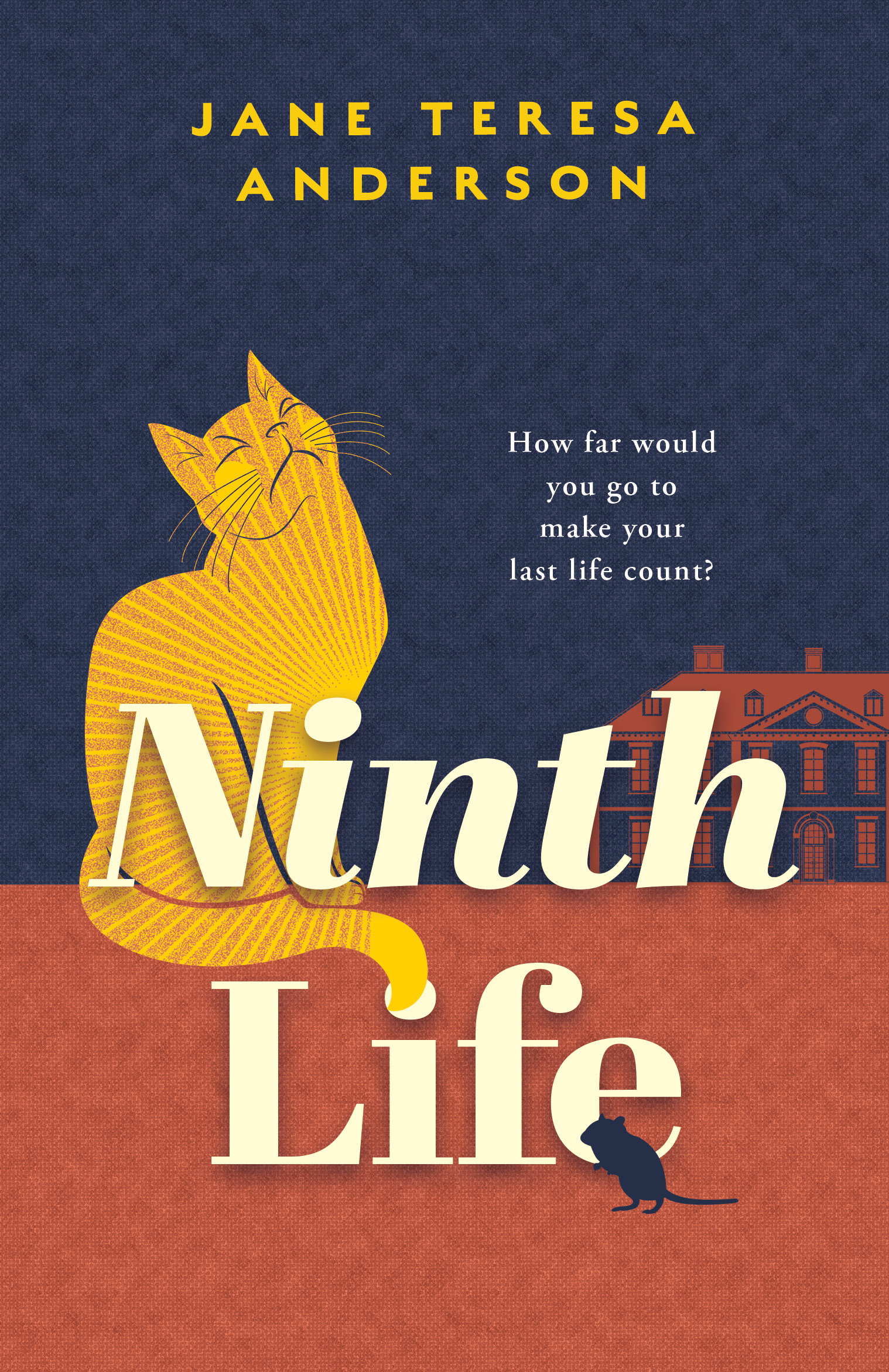Cat is on her ninth and final life, but she’s not entirely sure what comes next. She’s supposed to leave her earthbound body and become a spiritual guide for another creature—or she’ll remain on Earth and go through another cycle of nine lives. Musing on the particulars, Cat wanders into the Serene Lotus Centre for Health and Wellbeing, where she finds a host of spiritually attuned humans, all of them offering or seeking guidance of their own. The Centre proves to have all the right resources for Cat to unpack her prior eight lives and learn what she needs in order to ascend to her next level of being.
Jane Teresa Anderson’s NINTH LIFE has an unabashedly weird premise: a reincarnating cat who can transmit psychic messages to humans becomes embroiled in the life of a spiritual wellness center, whose employees include at least one woman who literally sees ghosts and conveys their messages to the living. Yet NINTH LIFE, despite all its spiritual trappings, is surprisingly grounded and often deeply human. Cat, the protagonist, is largely scent-driven, and the prose is heavy with olfactory pleasures like “the peppermint fragrance of newly cut grass;” but it also acknowledges the workaday details of the Centre, like the omnipresent “whiff of hot, milky morning coffee in paper takeaway cups.” The plot is also just as concerned with the material as with the spiritual: Cat wanders into the Centre, and almost immediately the humans there wonder if they can work her into their marketing materials to bring in more business. If nothing else, this is one of NINTH LIFE’s primary strengths: it portrays an institution of spiritual wellness while fully acknowledging that it is a business run by humans; and those strictures mean that providing spiritual services (even when done in good faith by an experienced practitioner) can be complex and uncomfortable.
NINTH LIFE also has a firm grasp of its central themes. The dichotomy between appearance and reality, especially concerning identity, is established very early on: Cat’s name is Cat, and she’s a long-lived being with certain psychic powers, but the humans of the Centre are oblivious to this—calling her “Amantha” and treating her like a normal cat. This theme plays out in investigations of other characters and their motivations—especially Freya, a perimenopausal psychic whose hot flashes interfere with her readings; and Serenity, the business-savvy yogi who runs the Centre. Though this internal-external dichotomy can be read as true-false, or spiritual-material, NINTH LIFE never settles into uncomplicated complacency. On the contrary, issues like hot flashes affecting function, or the economic viability of a business linked to the misbehavior of a powerful male figure, appealingly counterbalance the more supernatural elements of the text.
NINTH LIFE is a story about reincarnation told by a psychic cat, but its concerns are entirely human. The text’s closely observed depictions of spiritual wellness practitioners, often both affectionate and critical, render it much more complex and rewarding than it appears at first glance: yet another dichotomy between perceived realities and internal truths.
Jane Teresa Anderson’s NINTH LIFE fully commits to a quirky premise with a surprisingly rich payoff.
~Dan Accardi for IndieReader


